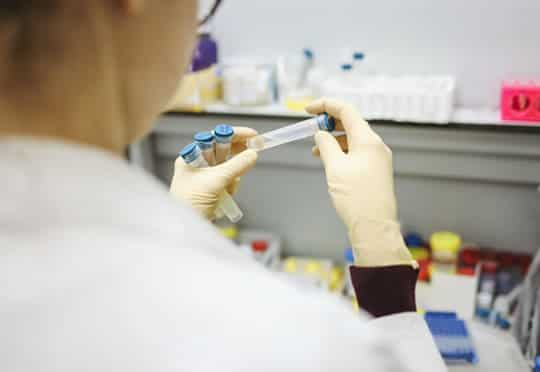The percentage of people who show strong antibody responses for many months after infection with the COVID-19 virus.
Most individuals infected with mild-to-moderate COVID-19 have the ability to neutralize the SARS-CoV-2 virus that is responsible.
Contrary to the media panic suggesting that antibodies against the coronavirus fade swiftly, a new Mount Sinai study proves otherwise.
In fact, more than 90 percent of recovered patients produce a strong antibody response lasting for a long time after infection.
Professor Florian Krammer, the study’s senior author, said:
“While some reports have come out saying antibodies to this virus go away quickly, we have found just the opposite—that more than 90 percent of people who were mildly or moderately ill produce an antibody response strong enough to neutralize the virus, and the response is maintained for many months.
Uncovering the robustness of the antibody response to SARS-CoV-2, including its longevity and neutralizing effects, is critically important to enabling us to effectively monitor seroprevalence in communities and to determining the duration and levels of antibody that protect us from reinfection.
This is essential for effective vaccine development.”
The findings are based on data from more than 30,000 COVID-19 recovered patients who were tracked from March to October 2020.
The research used a very sensitive and specific test which made it unlikely to generate either a false positive or a false negative.
This specific antibody test shows the amount (titer) of antibodies against SARS-CoV-2 produced by a person.
Professor Carlos Cordon-Cardo, study co-author, said:
“Our microbiology colleagues generated great science and tools that were brought from the research lab into the clinical laboratory, where we were able to implement robust and compliant diagnostic tests at an unprecedented pace.
The tireless efforts of so many have enabled us to uncover knowledge that can help inform COVID-19 policy and aid in vaccine development.”
SARS-CoV-2 has different proteins able to reproduce and infect our cells and the spike protein (S-protein) is the main part that the virus uses to attach itself to human cells.
Therefore, key for neutralizing antibodies as well as vaccines is to target the S-protein.
The other important issue is how long the antibody response to the S-protein lasts.
To find out the antibody longevity, the researchers recruited a number of recovered patients to donate their blood for convalescent plasma therapy.
The antibody levels of the plasma donors were measured at 3 months and 5 months afterwards.
They noticed that after 5 months a reasonable level of antibodies was achieved by most people.
A study by Ripperger et al., has also shown similar results.
Dr Ania Wajnberg, the study’s first author, explained:
“The serum antibody titer we measured in individuals initially were likely produced by plasmablasts, cells that act as first responders to an invading virus and come together to produce initial bouts of antibodies whose strength soon wanes.
The sustained antibody levels that we subsequently observed are likely produced by long-lived plasma cells in the bone marrow.
This is similar to what we see in other viruses and likely means they are here to stay. We will continue to follow this group over time to see if these levels remain stable as we suspect and hope they will.”
The study was published in the journal Science (Wajnberg et al., 2020).

